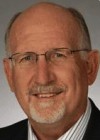Speech: Singing to celebrate, singing to survive
 [Presented at Mount Zion Missionary Baptist Church in Orlando, Florida, on January 13, 2012, as part of a Martin Luther King Holiday celebration featuring the singers of the “Negro Spiritual” Scholarship Foundation.]
[Presented at Mount Zion Missionary Baptist Church in Orlando, Florida, on January 13, 2012, as part of a Martin Luther King Holiday celebration featuring the singers of the “Negro Spiritual” Scholarship Foundation.]
By James Coffin
It’s more than appropriate that as we honor the life and legacy of Dr. Martin Luther King Jr, we use music as the means of showing our appreciation for what he achieved. But the music we’re so enjoying tonight also serves as a reminder of the challenges we still face.
Throughout human history, music has played a crucial role as the downtrodden and disadvantaged have sought deliverance from their plight. Music kept the spark of optimism alive as slaves went about their daily tasks of forced servitude. Music likewise buoyed the spirits of African-Americans in a post-slavery United States, where the promise of justice and fairness and equity tantalized but was rarely realized.
Not only is music the appropriate vehicle for tonight’s celebration, but the specific music that’s being featured is especially appropriate because it was out of both slavery and the post-slavery experience that the “Negro Spiritual” was born.
At times the singing of spirituals was merely to survive. At times it was to celebrate. But rarely did the singing celebrate a reality already achieved. More often than not, the song was about a better land and a better life that could be seen only through the eye of faith. But whatever the purpose of the singing, it raised the spirits, gave hope and bonded the community together. Throughout recorded Judeo-Christian history, crisis and deliverance have often been associated with music.
When an absolutely overwhelming enemy force was invading Judah, good king Jehosophat appointed a special group of men to march in front of his army. Were these men great swordsmen or javelin throwers or sling-shot marksmen? No. They were singers! And they sang: “Give thanks to the LORD, for his love endures forever.”
Imagine that! The choir marching ahead of the infantry! That’s about as extreme an example as we’ll ever find of celebrating something that can be seen only through the eye of faith! Yet the Bible declares: “As they began to sing and praise, the LORD set ambushes against the men of Ammon and Moab and Mount Seir . . . .” And the invaders were defeated!
Some three thousand years later, when Dr. King marched arm in arm with other stalwarts in the cause of civil rights, when they faced guard dogs and fire hoses and riot-police squadrons–and they did it while singing about the changes that, by God’s grace, they hoped would soon become reality–the heart of many an onlooker was changed. Many a closed and stubborn mind was opened to a new understanding of the brotherhood and sisterhood of all humanity.
When two very famous early-Christian preachers were arrested, beaten and thrown into prison, they sang. The Bible says: “About midnight Paul and Silas were praying and singing hymns to God, and the other prisoners were listening to them.” Note that last clause: And the other prisoners were listening to them.
Fast-forward two millennia. James Farmer, a participant in the 1961 Freedom Ride, tells how a voice called out in the jail where they were being held: ‘‘Sing your freedom song.” Farmer continues: “We sang old folk songs and gospel songs to which new words had been written, telling of the Freedom Ride and its purpose.’’ He then describes how the female freedom riders in another wing of the jail joined in. ‘‘And for the first time in history,” Farmer says, “the Hinds County jail rocked with unrestrained singing of songs about Freedom and Brotherhood.”
Singing, particularly in times of extremity, makes an impact on onlookers. It did in New Testament times. It did in the 1960s. And it still does today. It shows a calmness of spirit. A certainty in the righteousness of one’s cause. An absolute fearlessness.
In the early 1960s Dr. King said concerning the role of music: ‘‘The freedom songs are playing a strong and vital role in our struggle. They give the people new courage and a sense of unity, . . . particularly in our most trying hours.’’ Music creates hope even when hope is all but dead. And hope achieves great things. Dr. King understood that fact.
In the conclusion of his 1963 “I Have a Dream” speech, Dr. King proclaimed in powerful cadences: “When we allow freedom to ring, when we let it ring from every village and every hamlet, from every state and every city, we will be able to speed up that day when all of God’s children, black men and white men, Jews and Gentiles, Protestants and Catholics, will be able to join hands and sing in the words of the old Negro spiritual, “Free at last! Free at last! Thank God Almighty, we are free at last!”
That’s the essence of what we celebrate tonight through music.
James Coffin is executive director of the Interfaith Council of Central Florida.
